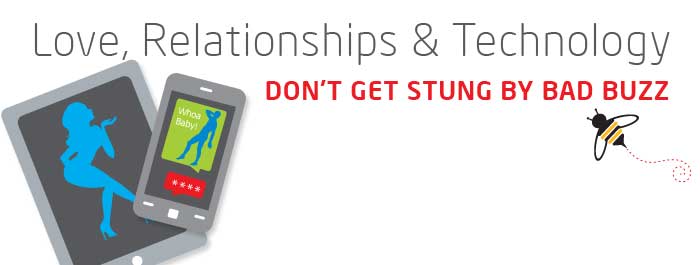Yes we all use (or at least 96% of us do) our smartphones to take photos. But almost half of us (49%) have sent or received intimate content (photos, texts, etc.). So it’s time to stop and think about what we’re sharing and with whom.
I’ve said this before…the rise of smartphone usage has provided us with tons of convenience, but also brought about different risks we need to consider. Sharing intimate or racy information via mobile devices can set you up for potentially adverse situations.
A study by McAfee shows a number of adults sharing private details about their lives, including those of an intimate nature such as nude photos and sexts—all of this on unsecured digital devices—now, that’s just asking for a social scandal.
27% of us still don’t secure our mobile devices with a basic personal identification number (PIN) or passcode. And 38% of us have shared our PIN or passcode with our significant other. This puts you at risk for cyber stalking, identity theft and leakage of their intimate data.

Come on now people, stop being so reckless. No matter what your age group or gender, a lot of you are engaging in behaviors that will sting you in the end. The time to wake up and get smart is BEFORE something adverse happens that will expose you in ways you never wanted.
Things to Remember
- Be careful what you share. Don’t share your passwords with anyone, including significant others and family members. If you absolutely need to share it, create a unique code just for that account, and change it immediately if you suspect foul play.
- Put a PIN on it. Always use a PIN or passcode on your smartphone and other mobile devices. If your phone is lost or stolen, anyone who picks up your device could get access to all your information and publish it online.
- The delete button is your friend. If you do send personal or intimate messages, take the time to delete the content from your mobile device and personal accounts as soon as possible. It doesn’t take that much time and it could save you years of damage control for your reputation.
- Once you share, it’s no longer yours. Remember before you hit send, post, tweet, etc. that once you share private information it’s now out of your control and you’re reliant on others to protect your privacy–for better or for worse.
To join the conversation use #SextRegret or follow McAfee on Twitter @McAfee_Home or Facebook.
The Futures Company and MSI conducted surveys in the US, UK, Australia, Canada, Germany, France, Spain, Italy, The Netherlands, Japan, Mexico, China, India, Singapore and Brazil among 9,337 men and women, ages 18 to 54. The survey was conducted in December 2013 – January 2014.













